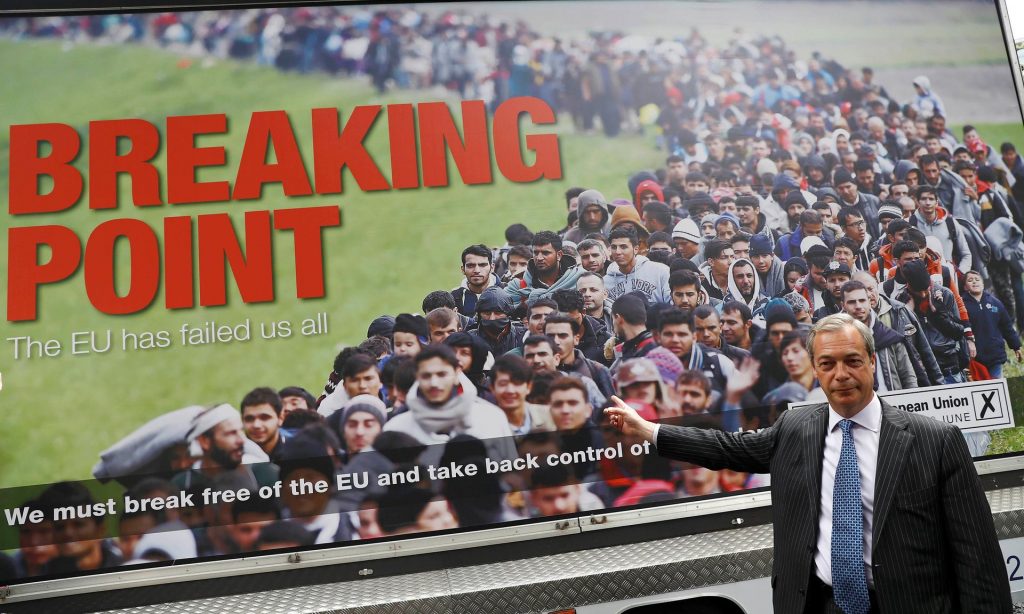What can one definitively write about Britain voting to leave as this seismic event unfolds? As a person of colour, attempting to make sense of my country right now feels something like being disembodied. My thinking self is somewhere separate from my body. I am out of place. I am vulnerable.
How could I not? When genuine anger and frustration are misdirected on to the body of migrants, then I and other people of colour have the right to feel threatened and exposed.
Today – indeed, over the course of the referendum campaign – we have been made highly visible in our difference. Forgive the paranoia, but tell me, what else are we to think when the national dialogue of being at “breaking point” culminates in that notorious poster? When your fellow citizens resoundingly believe that you are the cause of their pain, then history tells you to heed that as a warning. I’d be foolish to not see myself as necessarily implicated in any command to “send them back”.
The paradox of this referendum has been that those who have experienced the highest levels of migration turned out to be the least concerned about it. Fear of the unknown often underlines bigotry and xenophobia. We know that.
This, ultimately, is why I voted to remain. The EU, with its refugee camps and border controls to the rest of the world is no utopian ideal for people of colour. And there are people of colour who voted to leave. Doing so, as we have seen, has been dependent on class, age and geographical location. People have very real concerns about precarious work that doesn’t pay enough to live on, housing that isn’t affordable, and a national health service functioning at its limits because it is indebted to private finance while being squeezed by cuts to social care budgets.
The impulse to the apocalyptic is easy. I spent much of Friday thinking everything had gone irreversibly wrong. But to do so would be our biggest mistake. Now is not the time to buy into a narrative that simply says we are forever doomed.
That Britain has racism embedded deep in its cultural DNA is no surprise. We’ve heard of slavery and colonialism. And, to quote Walter Rodney, “Oppression follows logically from exploitation, so as to guarantee the latter.”
Racism enabled Britannia to rule those waves. What we have witnessed, though, is a mutation of this gene. There is no imperial might here, but fear and loathing born out of weakness. What else is the slogan “Take back control” alluding to, if not this? All of which is to say that the objectives of those of us on the left must remain the same: to create a fairer society in which the most vulnerable are protected.
We can start to prepare ourselves for the work ahead by today finding others like us and attempting to feel safe and understood in their company. We must gather together and do so without demonising those who voted to leave, or labelling them racist or stupid. That kind of tone-deafness will get us nowhere. We must make it an imperative to reach out beyond our own circles to these voters, to listen to them properly. By that, I mean with no ulterior motives.
Really listening means hearing what it is like to live in their not-so-Great Britain. That means feet on doorsteps and getting out of our moneyed boom cities and into the community centres of Sunderland, Bradford and Neath Port Talbot. It means not ceding territory on migrants and emphasising our duty to provide asylum for people seeking safety.
We cannot blithely accept that we’ve lost the argument. In fact, we should be more vocal than ever that migrants are no drain and that it is morally right to provide sanctuary to people fleeing persecution and conflict.
What is at stake if we don’t get up and on with this is far more frightening than Friday’s result. In the vacuum that our absence will create, Farage and co will move in. We can’t let that happen.

